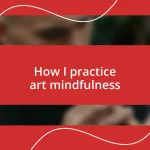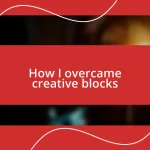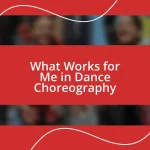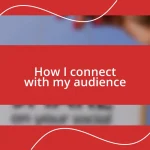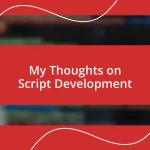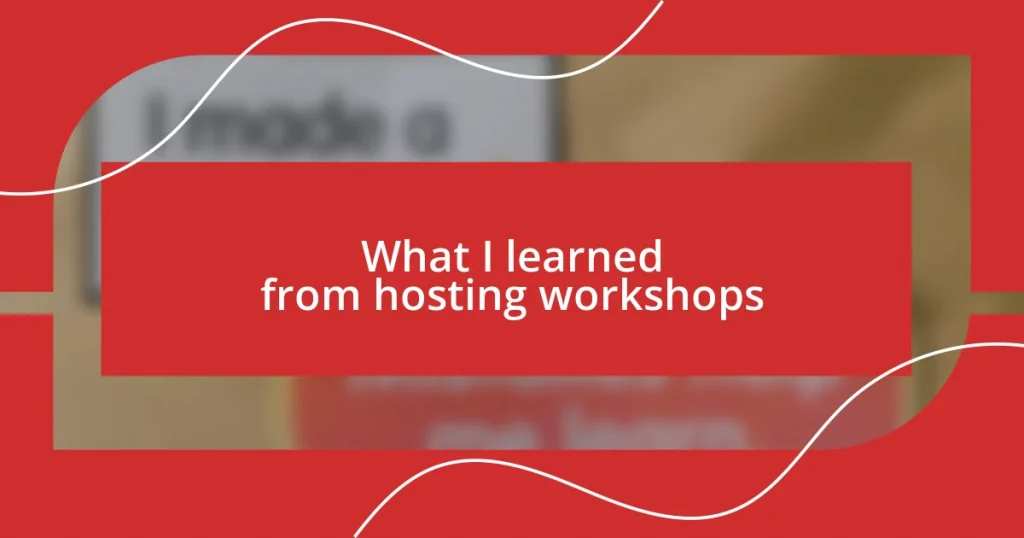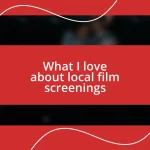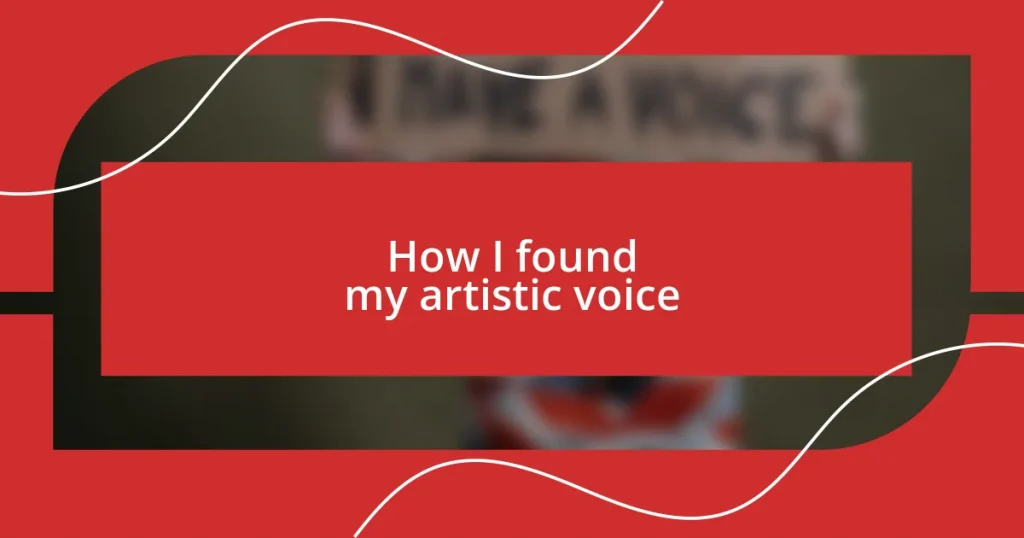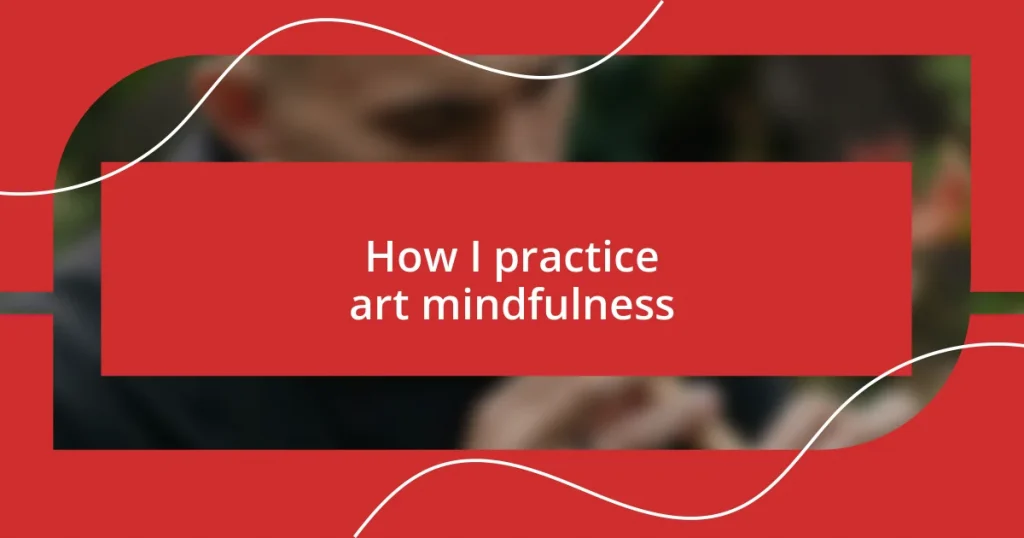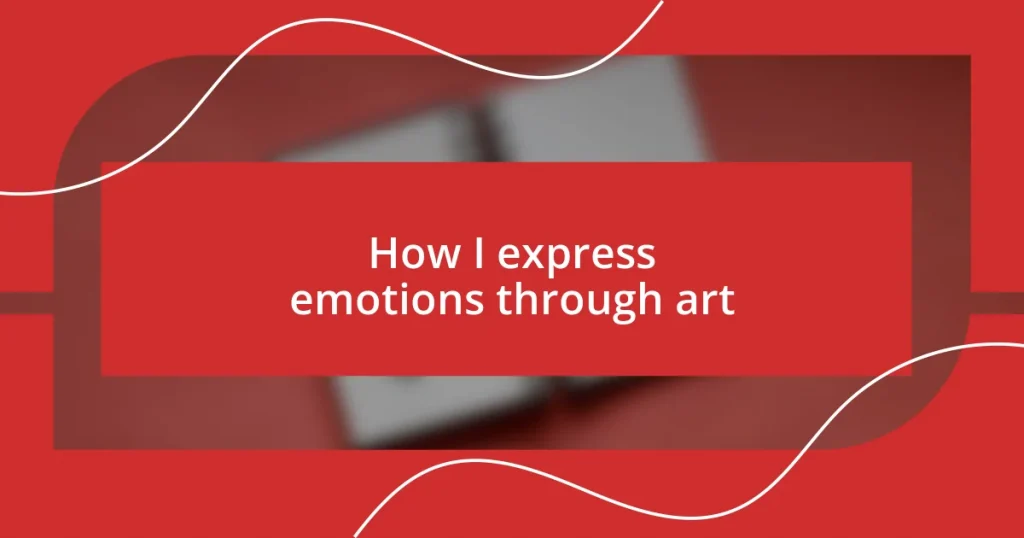Key takeaways:
- Effective communication and adaptability are essential for engaging workshops, allowing hosts to connect with participants and handle unexpected situations smoothly.
- Building genuine connections through icebreakers and collaboration fosters a supportive environment that enhances learning and community among attendees.
- Utilizing storytelling in marketing and post-workshop follow-ups can nurture relationships, measure success, and create lasting impact beyond the event.
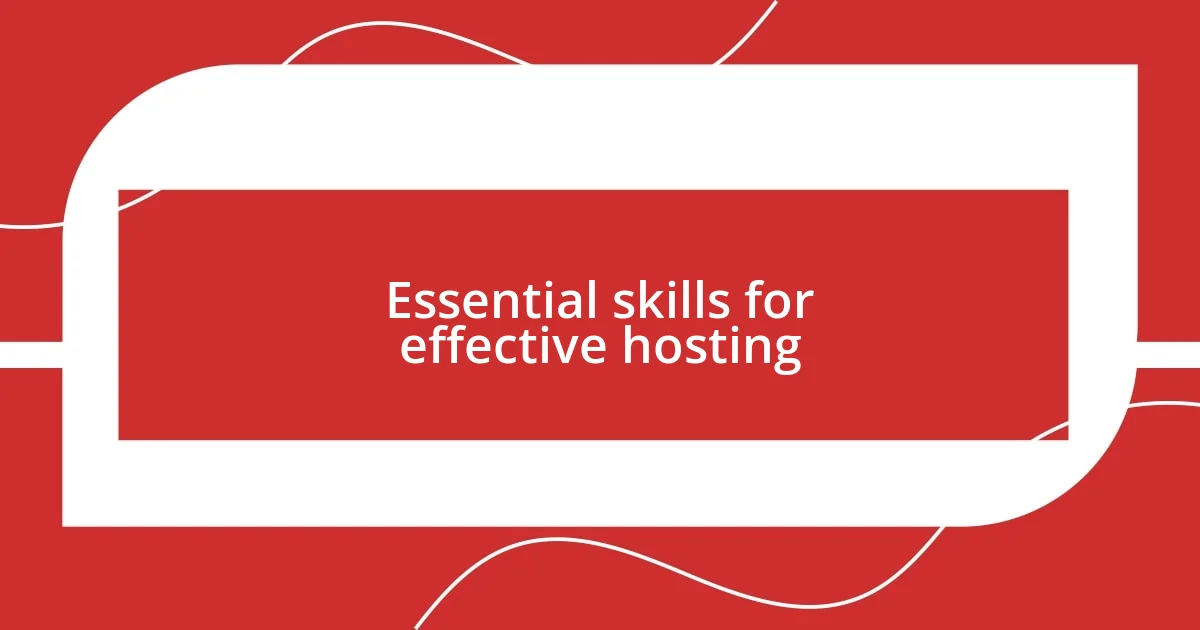
Essential skills for effective hosting
When it comes to hosting workshops, one essential skill I’ve come to appreciate is effective communication. I recall a time when I stumbled through my opening remarks, trying to connect with the audience. The silence felt palpable, making me realize just how important it is to articulate thoughts clearly and engage listeners from the get-go. Have you ever watched an audience’s energy shift when someone speaks in a relatable way? It’s a reminder that the right words can bridge gaps and ignite interest.
Adaptability is another crucial skill. I remember an unexpected technical glitch during one of my sessions. Instead of panicking, I quickly shifted gears and turned it into an interactive discussion. This not only kept the energy up but also made participants feel more involved. Who would have thought a hiccup could transform a workshop into a memorable experience? Embracing flexibility allows hosts to turn potential pitfalls into opportunities for deeper connection.
Lastly, I believe that fostering a welcoming environment is key. I once made a conscious effort to remember a few names and personal details about participants. This small gesture made a big difference; people lit up when they were addressed personally. Have you noticed how a simple acknowledgment can make someone feel valued? Creating a space where everyone feels comfortable to share promotes a richer discussion and enhances the overall experience for everyone involved.
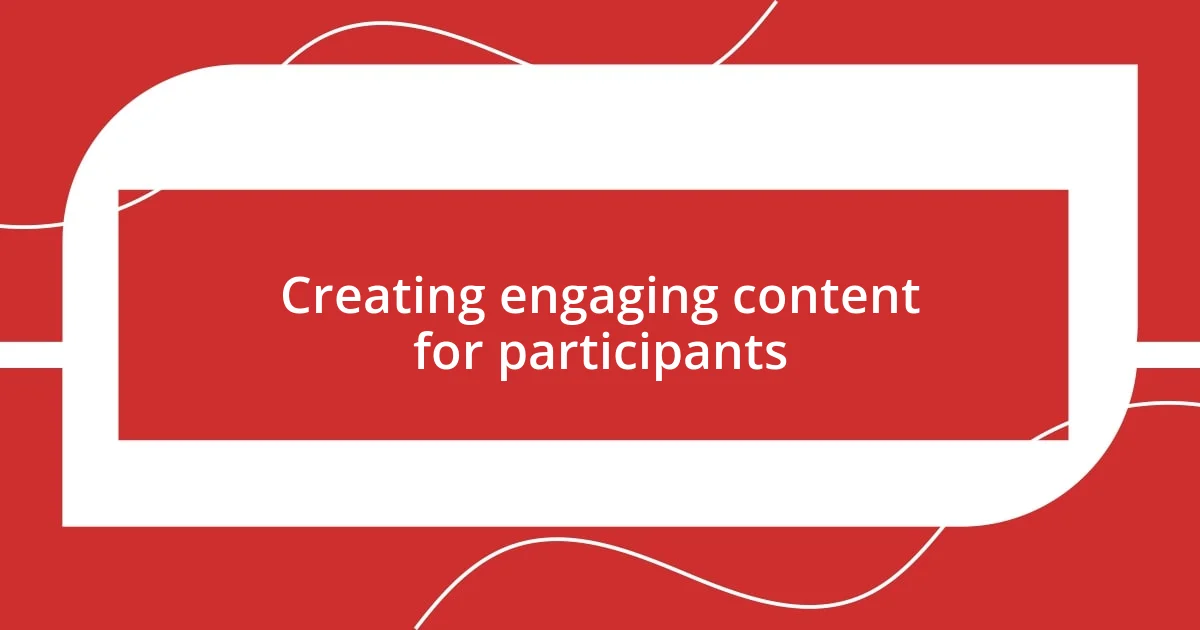
Creating engaging content for participants
Creating engaging content for participants is all about understanding your audience. One time, I crafted a workshop that incorporated real-life scenarios related to the participants’ interests and professions. When I encouraged them to share their experiences, the room sparked with energy and laughter. It was amazing to witness how powerful it can be when participants feel that their voices matter. This approach not only captures attention but also fosters a sense of community and shared learning.
To enhance engagement, I recommend focusing on the following strategies:
- Interactive elements: Use polls or Q&A sessions to encourage participation.
- Visual aids: Incorporate images, videos, or infographics to reinforce key points.
- Storytelling: Share relevant anecdotes to make content relatable and memorable.
- Group activities: Plan small group discussions or breakout sessions to promote collaboration.
- Feedback loops: Regularly ask for input from participants to gauge their interests and adapt accordingly.
By infusing these elements into your content, you’re not just delivering information; you’re creating an experience that resonates with participants long after the workshop ends.
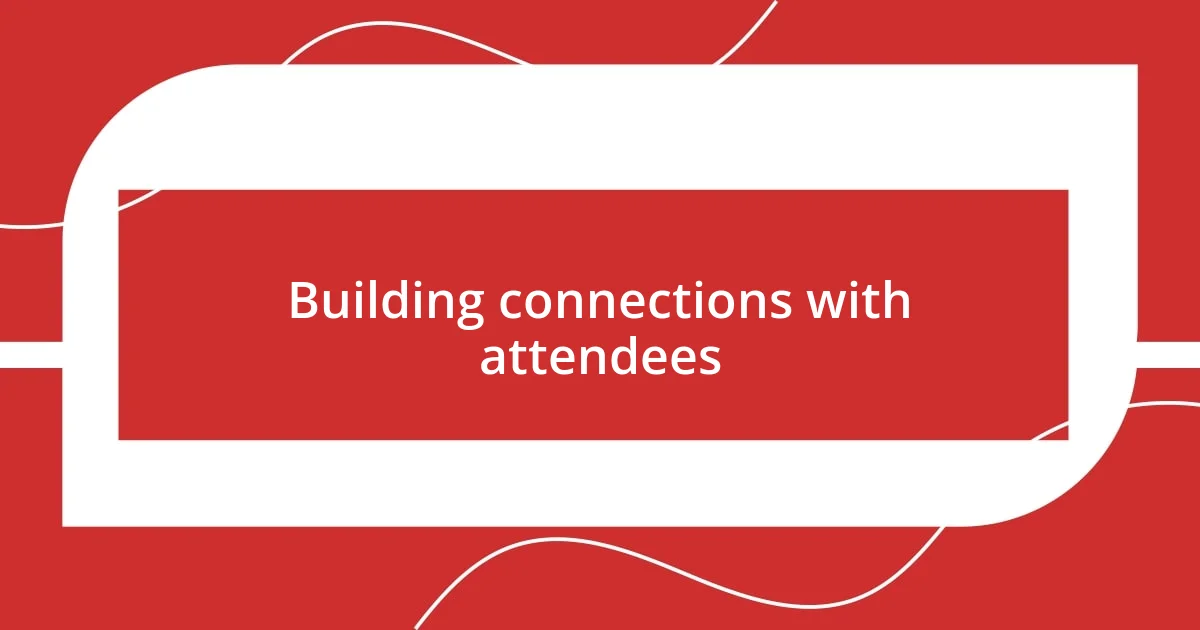
Building connections with attendees
Building connections with attendees is about more than just exchanging ideas; it’s about forming genuine relationships. I recall a workshop where I decided to start with a simple icebreaker. Each participant shared one interesting fact about themselves. The atmosphere shifted instantly; suddenly, a room full of strangers became a space of laughter and shared stories. Have you felt that magical moment when barriers break down? It’s these early connections that lay the groundwork for meaningful discussions.
Another technique that has worked wonders for me is creating opportunities for collaboration. I once facilitated a small group activity, where participants were tasked with brainstorming solutions to a common challenge they faced. The level of engagement was palpable! Watching them rally together to tackle a problem reinforced my belief that collaboration not only inspires creativity but also deepens connections among attendees. This experience taught me that people naturally gravitate towards each other when they work towards a common goal.
Finally, I advocate for follow-up. After my workshops, I’ve made it a practice to reach out and thank attendees for their participation. I also invite them to join a dedicated online group for ongoing discussions. This simple gesture has fostered a continued sense of community, and many have expressed appreciation for the opportunity to stay connected. Have you considered how a straightforward “thank you” can leave a lasting impression? It demonstrates that you value their input, which is vital for nurturing long-term relationships.
| Connections through Icebreakers | Connections through Collaboration |
|---|---|
| Creates immediate engagement | Fosters teamwork and creativity |
| Breaks down initial barriers | Deepens relationships |
| Encourages sharing personal stories | Builds a community of problem-solvers |
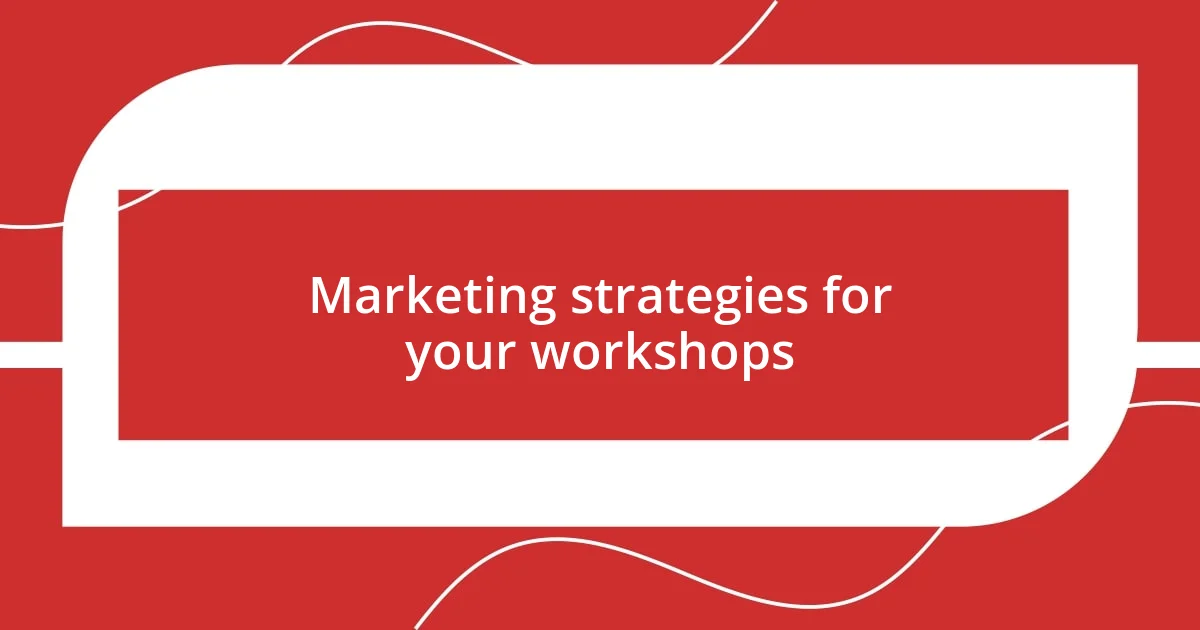
Marketing strategies for your workshops
When it comes to marketing workshops, I’ve found that storytelling can be a game-changer. Last year, I decided to share my personal journey leading up to the workshop in my promotional materials. I shared the challenges I faced and the transformative moments that fueled my passion for the topic. This genuine narrative not only drew in participants but also resonated with them, creating an instant connection. How often do we remember something because of a compelling story?
Another strategy that worked wonders for me was leveraging social media to create buzz. I crafted a series of short teaser videos, highlighting key benefits of attending. Each clip was designed to stir curiosity and showcase the unique aspects of the workshop. It felt incredibly rewarding when I started receiving messages from potential attendees expressing excitement about the event. Are you utilizing the full potential of social platforms for your outreach?
Lastly, I urge you to prioritize an email list. After each workshop, I collected email addresses to keep in touch with attendees. Sending them valuable content related to the topics we covered not only keeps the conversation going but also positions me as a resource for their ongoing learning journey. It’s a simple yet effective way to nurture relationships. Have you considered how your follow-up can serve as a bridge to future workshops? Each email is an opportunity to reignite interest and spark new connections.
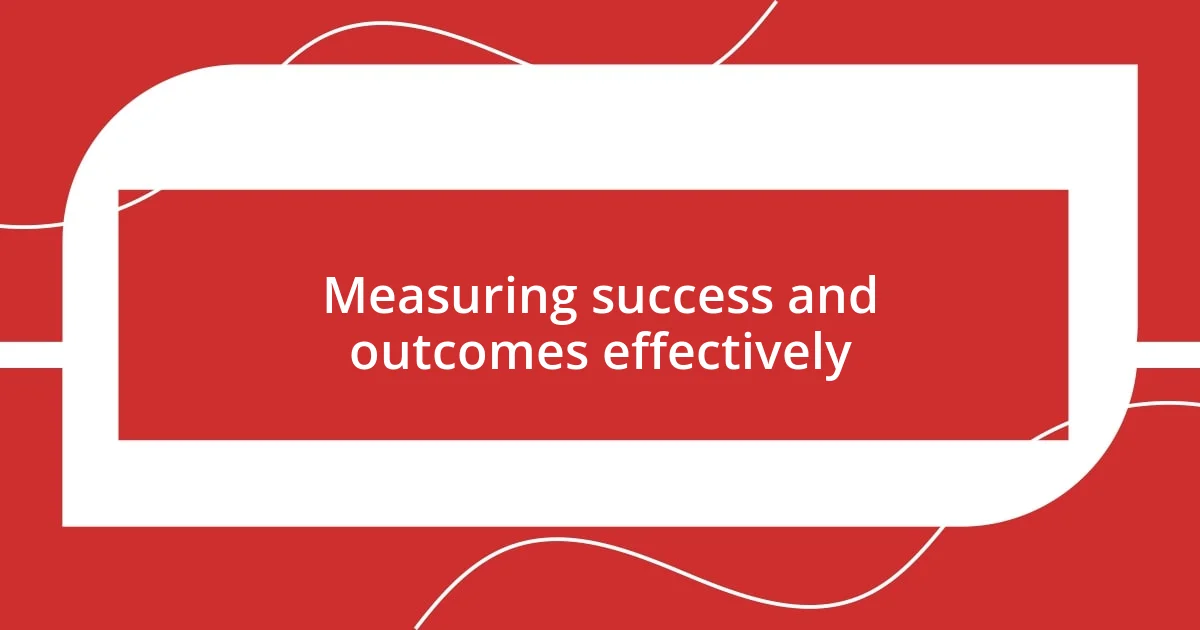
Measuring success and outcomes effectively
Measuring success and outcomes effectively requires not just metrics, but also reflection. I remember one workshop where we collected feedback through a quick survey immediately after. The immediate responses were incredibly insightful! It was fascinating to see participants articulate what resonated with them and what could improve. Have you ever thought about how quickly you can gauge the pulse of your audience? Those post-event surveys became a fundamental tool for continuous improvement.
For me, success also means looking beyond attendance numbers. After one session focused on professional development, I tracked how many participants implemented what they learned in their work. I reached out to a few attendees later, and hearing their success stories filled me with pride. One shared how they applied a new approach to team management that led to improved morale. Isn’t it rewarding to see the real-world impact of your efforts?
Lastly, I’ve found value in analyzing long-term outcomes. Six months after a workshop, I conducted follow-up interviews with selected attendees. This wasn’t about gathering stats; it was about hearing their stories. To my surprise, many reported not just personal growth but also how they had influenced their colleagues. Reflecting on these experiences reminded me of the ripple effect of our work. Do you consider how your workshops might leave a lasting legacy? Each interaction can truly extend far beyond the initial session.

